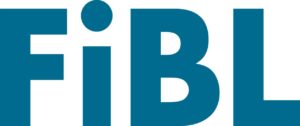By Willer H., De Simone A., Kemper L., Moeskops B.
Introduction
The online platform Organic Farm Knowledge (www.organic-farmknoweldge.org) intends to help increase productivity and quality in organic farming across Europe by providing access to a wide range of tools and promoting the exchange of knowledge among farmers, farm advisers and scientists.
Organic Farm Knowledge was set up in the European funded project OK-Net Arable (2016-2019), which promoted improved productivity and quality in organic arable cropping. The platform has now been expanded to include the knowledge acquired in the OK-Net EcoFeed project (2018-2020), which supports organic pig and poultry farmers achieve the goal of using 100% organic and regional feed. Further projects are joining, and tools addressing a range of additional themes are being added.
Which themes does Organic Farm Knowledge cover?
In the projects mentioned above, relevant tools are selected, translated and produced. In OK-Net Arable, the partners provided about 180 tools on arable crops, soil quality and fertility, nutrient management, pest and disease control. OK-Net EcoFeed focusses on pigs, broilers, laying hens, feeding and ration planning and the handling of harvested feed. Many of the OK-Net EcoFeed tools are now on the Organic Farm Knowledge online platform and additional tools will follow soon.
Several European projects have expressed interest or are already committed to supplying tools on themes such as seed, plant breeding, fruit production, and inputs used for organic plant protection, animal productions and fertilisation. These tools are expected to be available soon.
The toolbox – the core of the platform
The core of the platform is the “toolbox”. Available tools include, for instance, factsheets, guides, online calculation tools and videos. Every tool is described by metadata that helps users to find the most relevant tool addressing their needs. Metadata include the problem the tool addresses, the solution(s) it offers, a description of the tool, the theme(s) covered, the language(s) it can be found in, the year it was released, the country of origin and information about the issuing organisation.
Key questions
1. How can I find a tool?
For each of the themes of Organic Farm Knowledge, a dedicated theme page has been set up where the tools related to a theme can be found along with some background information.
An extensive search function is also available, and tools can be browsed by theme, keyword, tool type and language.
2. Are the tools available in all languages?
While not all tools are available in all languages, their summaries and key recommendations are translated – via automatic translation – into Bulgarian, Danish, Dutch, Estonian, French, German, Hungarian, Italian, Latvian, Serbian, Spanish and Swedish.
3. How can I inform myself about new tools?
All tools are announced on the Organic Farm Knowledge platform with a news item. The latest tools are also highlighted in a separate boxon the homepage and on the relevant theme pages.
The tools are also promoted via social media: on Facebook https://www.facebook.com/organicfarmknowledge and on Twitter https://twitter.com/farm_knowledge.
4. Can I rate and comment a tool or engage in discussions?
The Organic Farm Knowledge Platform offers the opportunity to rate tools.
For discussions, we offer the Organic Farm Knowledge Facebook page and the Twitter account, where each individual tool is posted and can be commented upon. Also, the discussion function DISQUS on the platform itself can be used.
5. Most popular tools by theme
So far, tools related to organic arable farming and to organic animal feeding (focus on monogastrics) are available.
In OK-Net Arable almost 180 tools on arable farming were gathered, which are now available under the theme “Crop production”. In the future, this category will also cover horticulture. Here are the most popular tools within the theme of crop production:
• Of the arable crop-specific tools, the video “Cover Crop (Rye) and No-Till System in Wisconsin” is the most popular one.
• This video is also the most popular tool related to the theme of soil quality and fertility. Next comes the booklet “How to successfully convert to organic arable farming”.
• Related to nutrient management, the factsheet “Testing peas for legume fatigue” is the most popular.
• Within the theme pest and disease control, a factsheet on “Reducing the use of copper in potatoes” is the most popular.
• For weed management, among the most popular tools is the factsheet “Comb harrow: efficient weed control in cereals”.
• For cropping systems, one of the most popular tools is the video “Rape pollen beetle”.
In the area of livestock, with its current focus on monogastric feeding, the following tools have been rated.
• Feeding and ration planning is the theme in which the most tools are currently available. Tools include videos, handbooks and practice abstracts covering themes such as “Seaweed as feed supplement”, “Roughage for organic laying hens”, “Foraging sows on high-protein grassland”, or “Fulfilling 100 % organic poultry diets: roughage and foraging from the range”.
• On broilers and laying hens several tools have been provided, e.g. “Proteins from organically grown green crops are promising poultry feed”.
• On pigs, tools such as “Feeding pigs: effect of silage”, “Improving health and welfare of pigs – A handbook for organic pig farmers”, or “Rotating pasture for pregnant sows” are available.
• In the field of animal health, “Feeding grass silage to fattening pigs” is the most popular.
6. Expansion of the platform
An important development is that several Horizon 2020 and CORE Organic projects have joined the platform and want to use it to disseminate their practice-oriented output. These include LIVESEED (Improve performance of organic agriculture by boosting organic seed and plant breeding efforts across Europe), RELACS (Replacement of Contentious Inputs in organic farming Systems), ReMIX (Redesigning European cropping systems based on species MIXtures) and all recent CORE Organic projects (Coordination of European Transnational Research in Organic Food and Farming Systems).
Soon it will also be possible to search the platform by project; i.e. it will be far more easier to see which tools are the outcome of which project.
Conclusion
The work done so far shows that in Europe a lot of knowledge exists about organic farming, but it can be difficult to find, and in many cases, it is difficult for farmers and advisers to use it in their daily work. The online Organic Farm Knowledge platform offers tools that present scientific and practical knowledge that is designed for and by practitioners, making it easier to access and apply. The platform also offers the possibility for users to comment, discuss and ask questions about important themes and specific tools. In this way, the online platform contributes to helping farmers and advisors become more innovative and improving towards best practices. Further collaboration in the organic sector is needed to transform the platform into a unique and useful resource for all.
Background OK-Net Arable and OK-Net EcoFeed
Organic Farm Knowledge was originally set up in the Horizon 2020 project OK-Net Arable (Organic Knowledge Network Arable) and is now being further developed in OK-Net EcoFeed (Organic Knowledge Network on Monogastric Animal Feed). Both projects are thematic networks. OK-Net Arable addressed organic arable cropping. OK-Net EcoFeed aims to help organic pig and poultry farmers achieve the goal of using100% organic and regional feed. OK-Net EcoFeed is a continuation of OK-Net Arable, linking feed cultivation, feed processing and animal production.
Links
• https://organic-farmknowledge.org/
• https://www.facebook.com/organicfarmknowledge
• https://twitter.com/farm_knowledge
• https://ok-net-ecofeed.eu/



 OK-Net EcoFeed
OK-Net EcoFeed OK-Net EcoFeed
OK-Net EcoFeed